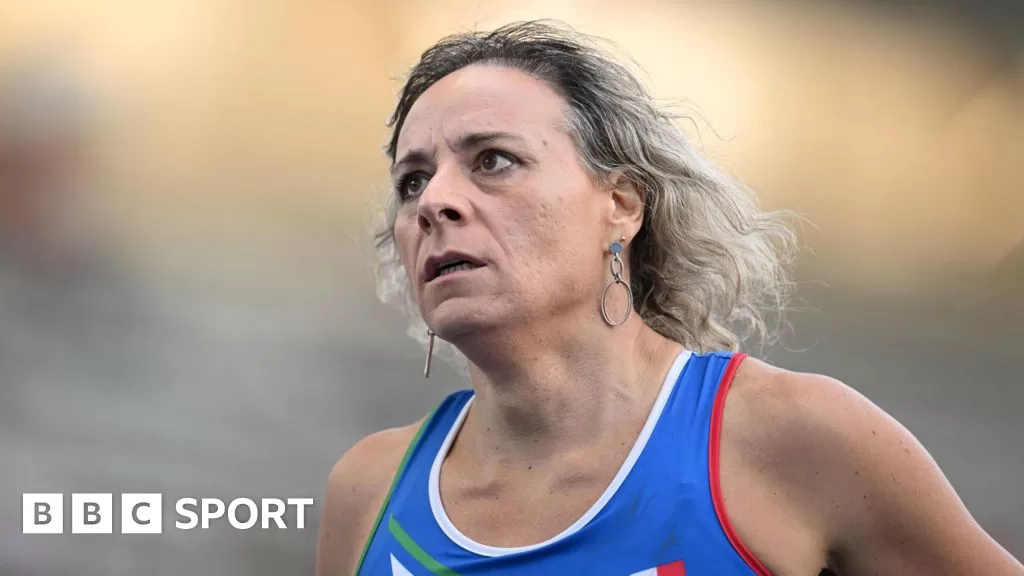Who is Petrillo?
In a previous interview with the BBC, Petrillo said she knew she was a woman from as young as nine.
At the age of 14, Petrillo was diagnosed with stargardt disease, a degenerative eye condition.
Petrillo won 11 national titles in the male T12 category for athletes with visual impairment between 2015 and 2018.
With her wife’s support, in 2018 she started living as a woman, and in January 2019 she began hormone therapy.
“My metabolism has changed,” she previously told the BBC.
“I’m not the energetic person I was. In the first months of transition I put on 10kg. I can’t eat the way I did before, I became anaemic, my haemoglobin is low, I’m always cold, I don’t have the same physical strength, my sleep isn’t what it was, I have mood swings.
“I’m not the same as before.”
She said her times became slower too, adding: “As a sportsperson, to accept that you won’t go as fast as before is difficult. I had to accept this compromise, because it is a compromise, for my happiness.”
However, she has won medals at both World Para Athletics Championships and National Para Championships since transitioning, and has competed in masters athletics events against non-disabled women.
Sports scientist Professor Ross Tucker said: “Male advantage is created through development and so it is essentially laid down over years and years of exposure to testosterone. The solution that sport has tried to come up with is to say well if the source of that advantage is testosterone then let’s lower it and then the athlete is free to compete.
“But that doesn’t work because there is an asymmetry there because some of the changes that testosterone causes, like the increased muscle mass, increased strength, the shape and size of the skeleton, those changes don’t go away. There are some, like haemoglobin levels, certain elements of the cardiovascular system that may go away.
“But the strength advantages, all the evidence that exists suggests that even when you remove testosterone in an adult those advantages continue to exist in that person. So therefore sport has to realise that it can’t take away that male advantage, reduce it slightly yes, but certainly it doesn’t get removed. And the only conclusion you can then draw is that the person still has male advantage even when their testosterone is lower.”
